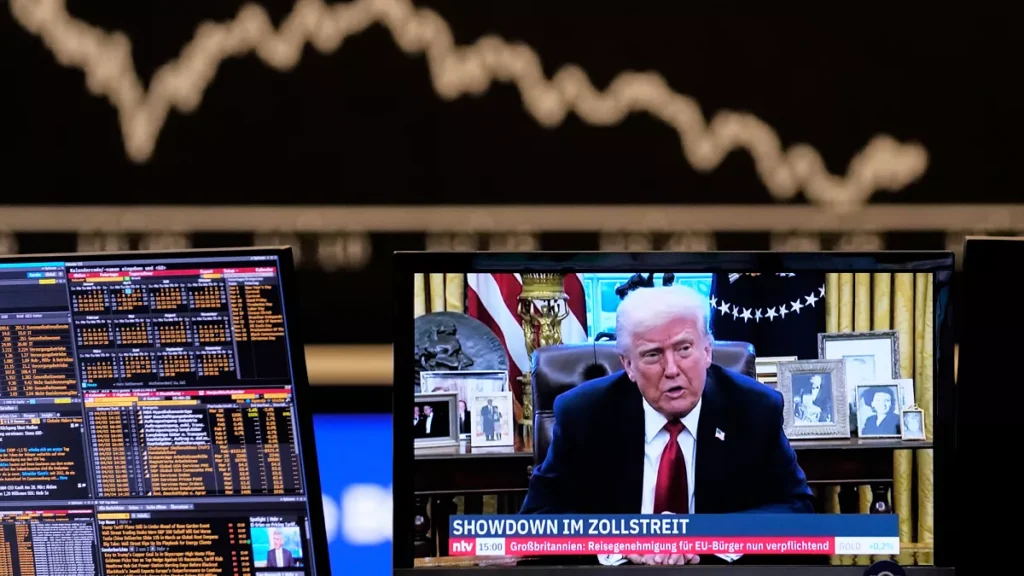Financial markets worldwide are experiencing a sharp downturn following President Donald Trump’s latest and most severe round of tariffs, announced late Wednesday. The U.S. stock market has been hit the hardest, with the S&P 500 plunging 3.7%, its worst performance since the COVID-19 crisis in 2020.
As of midday trading, the Dow Jones Industrial Average had lost 1,228 points (-2.9%), while the Nasdaq composite saw a staggering 4.8% drop. The Russell 2000 index, which tracks smaller U.S. companies, suffered a 5.5% decline, officially entering bear market territory after dropping more than 20% from its record high.
A Global Shockwave
Trump’s tariff announcement has sent ripples across international markets, with European and Asian stock indices falling sharply. France’s CAC 40 dropped 3.3%, Germany’s DAX lost 3%, and Japan’s Nikkei 225 declined 2.8%.
The tariffs, which impose a minimum 10% tax on imports, rise significantly for goods from China and the European Union, triggering widespread concerns about higher inflation and slowing economic growth.
“This is the worst-case scenario for tariffs,” said Mary Ann Bartels, Chief Investment Officer at Sanctuary Wealth. Financial experts fear that the U.S. economy could contract by 2 percentage points this year, with inflation spiking to nearly 5%, according to UBS analysts.
Industries Hit Hard
The impact of the tariffs has been immediate across various sectors:
-
Retail: Best Buy shares plummeted 15.9%, as most of its electronics come from international suppliers.
-
Aviation: United Airlines fell 12.3%, with fears that economic instability will reduce business and leisure travel.
-
Consumer Goods: Target dropped 9.8%, reflecting concerns that inflationary pressures will further strain American shoppers.
-
Supply Chain Woes: Businesses are already reporting disruptions, with tariffs on Canadian wood and aluminum delaying deliveries and increasing costs, according to the Institute for Supply Management.
What’s Next?
While Trump framed the tariffs as part of an effort to bring manufacturing jobs back to the U.S., economic experts warn that these policies could trigger a recession rather than strengthen domestic industry.
“Markets may actually be underreacting,” cautioned Sean Sun, portfolio manager at Thornburg Investment Management, adding that stock prices may fall much further if the tariffs remain in place.
Will the Federal Reserve Intervene?
The Federal Reserve faces mounting pressure to cut interest rates to help stabilize the economy. However, with inflation already rising, analysts warn that rate cuts could further fuel price increases rather than provide relief.
Treasury yields have already tumbled on expectations of Fed action, with the 10-year Treasury yield falling to 4.05%, down from 4.20% the previous day and 4.80% in January.
As investors brace for further market turmoil, the Trump administration’s tariff strategy has raised concerns not only about economic stability but also about its potential impact on the upcoming U.S. election.
Amnewsworld will continue to monitor the situation as it unfolds.



